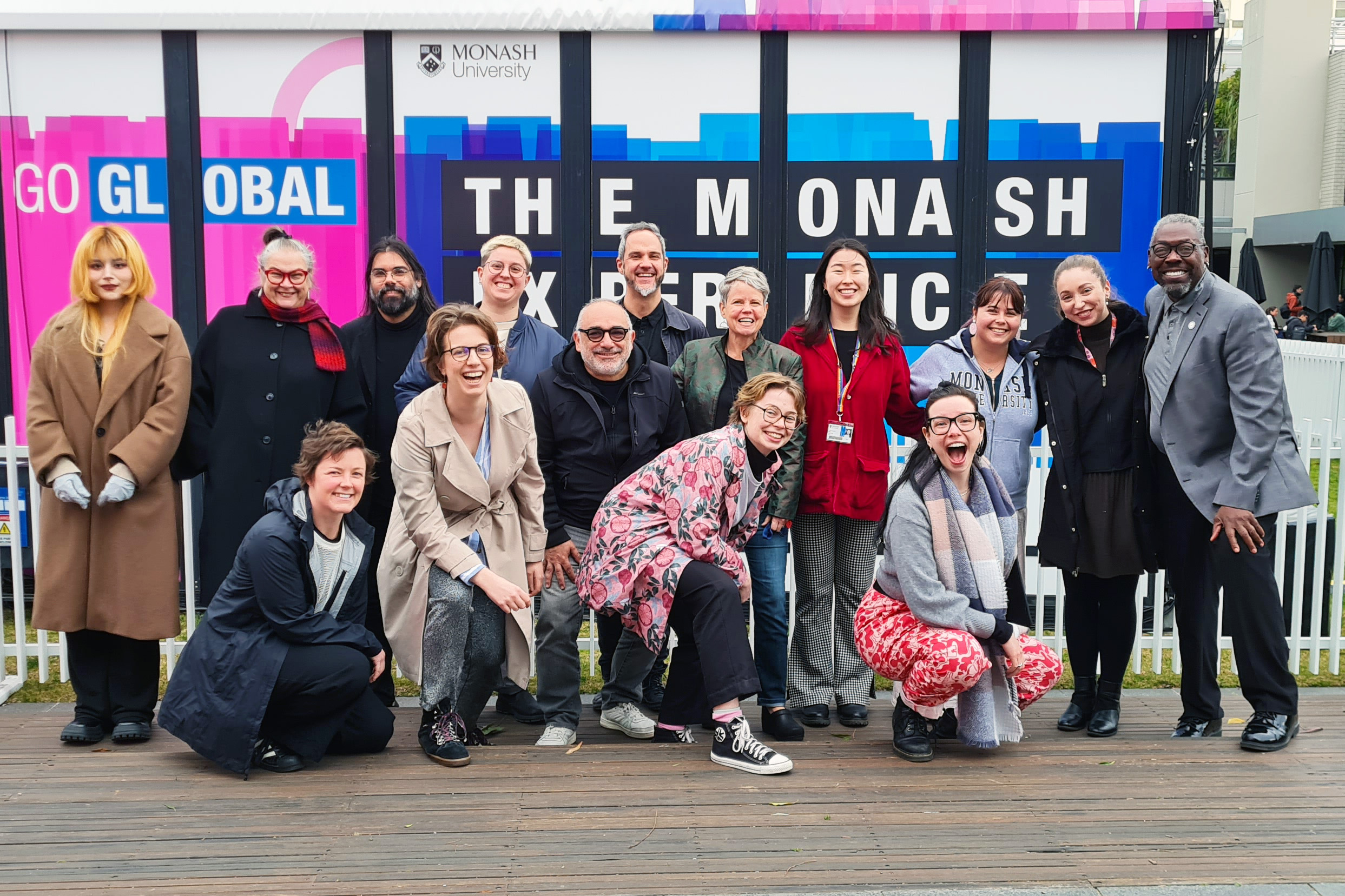
Bryant Keith Alexander, Ph.D., dean of the LMU College of Communication and Fine Arts, represented LMU in the southern hemisphere this summer, with a two-week engagement as a featured artist/scholar in residence in the Sir Zelman Cowen School of Music and Performance at Monash University in Melbourne, Australia. This engagement overlapped with a similar residency by Melody Rod-ari, Ph.D, art history professor and chair, who was appointed as the 2023 Sydney Asian Art Series Scholar in Residence at the University of Sydney in Sydney, Australia.
Alexander was invited by the Pedagogies for Creativity, Collaboration, Expertise and Enterprise (PoCCEE) research group at Monash University, which focuses on developing education and research opportunities that support ethical practice for social transformation in the arts. A noted professor of communication, cultural and performance studies, Alexander is also an adjunct/affiliate professor at Monash, a peer-reviewed appointment reserved for researchers and artists working at the highest levels of the profession.
“The residency was a stunning example of the synergies and growth that can be realized by working closely with a renowned artist and scholar through a residency engagement,” said Stacy Holman Jones, Interim Head of the Sir Zelman Cowen School. “Professor Alexander challenged, supported, and inspired our faculty and postgraduate students in each and every activity. It was a profound pleasure and gift to host him at our Melbourne Clayton campus.”
In his capacity as a pro bono adjunct/affiliate faculty at Monash, Alexander regularly engages in academic mentoring with students and faculty. In fall 2022, he delivered a public lecture via Zoom entitled “Dear Dádēē: An Epistolary Family Autoethnography,” as a part of his ongoing theorizing on the epistolary form in autoethnography. Alexander said, “I accepted the affiliate faculty invitation both as scholarly endeavor, and my commitment to interdisciplinary and international collaborations. At the time of the offer, I was serving on the LMU ACE Internationalization Lab spearheaded by Roberta Espinoza, Ph.D., vice provost for global-local affairs and senior international officer.”
During the residency at Monash, Alexander served as discussant and mentor for graduate students and faculty across a range of disciplines including their new Critical Performance Studies program that “focuses on developing knowledge, skills, and practices that help us understand and creatively engage the world around us.” This subject matter crosses over Alexander’s disciplinary interests, which has resulted in seven books, five of which have been written during his tenure at LMU, and nearly two hundred articles variously in race, culture, gender, pedagogy, DEI, performance studies, and critical auto/ethnography.
The residency was a stunning example of the synergies and growth that can be realized by working closely with a renowned artist and scholar through a residency arrangement
Stacy Holman Jones
The draft essay created as part of the residency was inspired by the published essay Alexander spearheaded with seven LMU faculty-staff/colleagues (Sr. Joanna Carroll, William Perez, Maria Melendrez, John Flaherty, Roberta Espinoza, Chris DeSilva, and John Axtell). That essay, “Learning How to Drive: Rites of Passage in Being and Becoming (A Collaborative Autoethnography Not Just About Driving)” was published in the journal, Cultural Studies <-> Critical Methodologies. And the interdisciplinary and inter-AJCU essay “Resounding/Resonating Sounds of Home, Heritage, and Heart: A Collaborative Autoethnography of Re/Membering the Self Through Storying Family” was recently published with four Santa Clara University faculty and staff (Michael Whalen, Brett Solomon, Marco Bravo, and Sharmila Lodhia), where Alexander visited in spring 2023.
Alexander’s keynote address is now under consideration for publication in a forthcoming handbook focused on queer and feminist pedagogies and informs his upcoming book project. Alexander said, “I have always embraced the interlocking nature of scholarly productivity and administrative engagement as key co-informing components of my identity, which allows me to be fully alive in the academic endeavor.”






